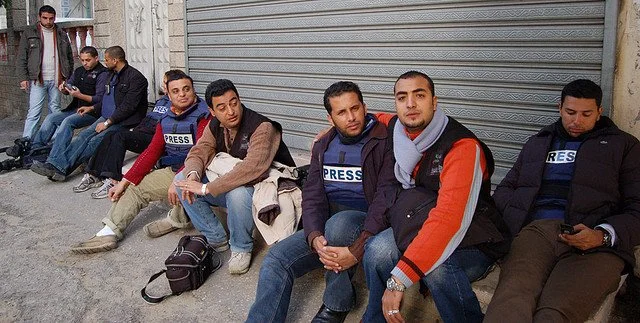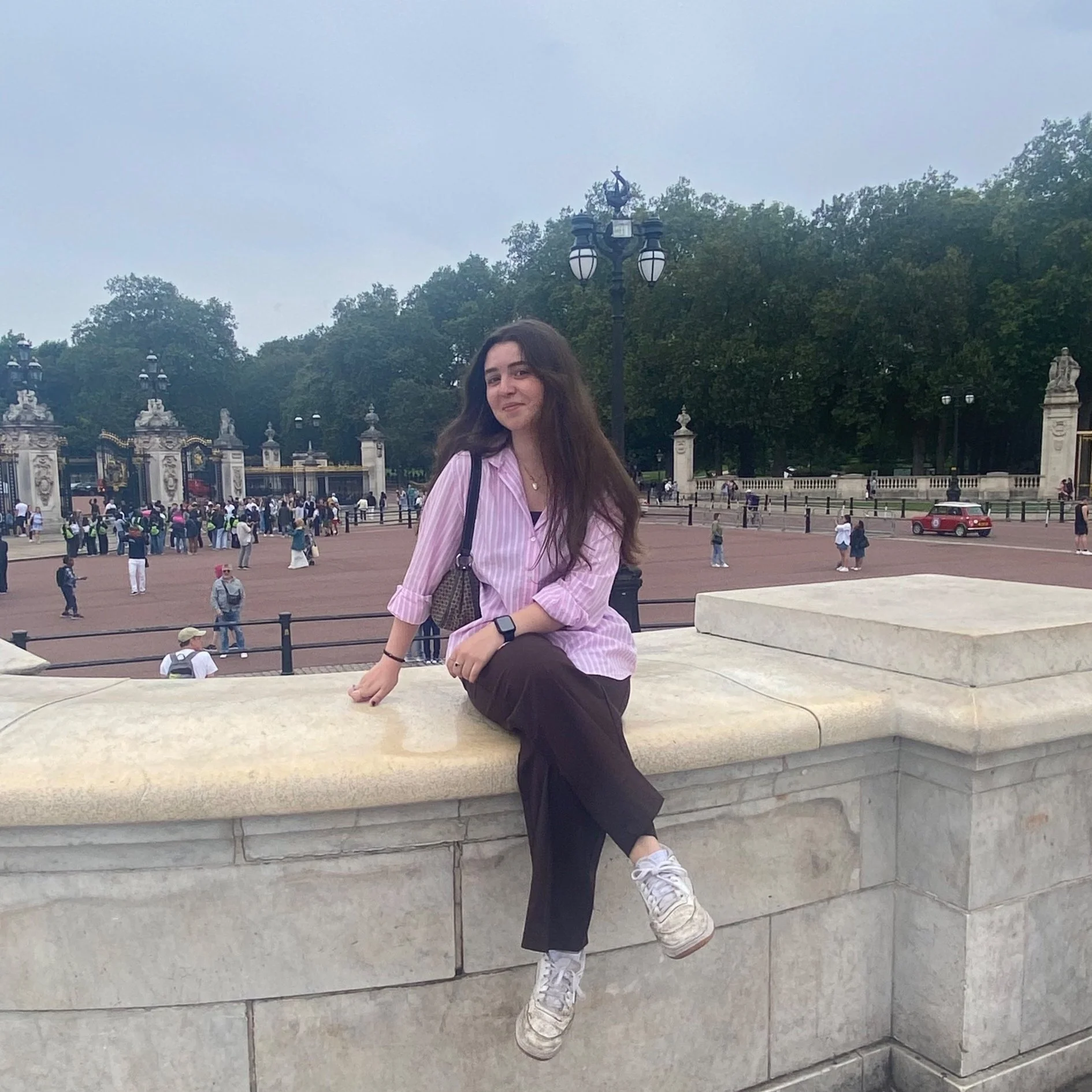The Israel-Hamas War is the deadliest conflict for journalists in 30 years, at least 83 journalists have been confirmed dead.
Al Jazeera’s Gaza crew and journalists. Global Panorama. CC BY-SA 2.0 DEED
Since the start of the Israel-Hamas war on October 7, there has been an unprecedented amount of journalist death and injury. Facing high risks to cover the unfolding conflict without guaranteed safety, this war has claimed more journalists than any other in the last 30 years.
As of January 24, at least 83 journalists and media workers have been confirmed dead. Among them, 76 were Palestinian, four Israeli and three Lebanese, according to the Committee to Protect Journalists (CPJ). Similarly, the International Federation of Journalists (IFJ) reported an estimated 94 journalists that have been killed and 400 others imprisoned. IFJ has called on the International Criminal Court (ICC) prosecutors to investigate the deaths of these journalists, though Israel has argued that the ICC has no jurisdiction in the conflict because the Palestinian territories are not an independent sovereign state.
The Israel-Gaza war has become the most deadly conflict for members of the press. In 2022, 15 journalists were killed in Ukraine, 30 in Latin America and at least five in Haiti, making the amount of journalists killed in Gaza in just a few months of war greater than all of those killed worldwide in 2022. Because of such an increase, some believe that journalists are being explicitly targeted for the information that they aim to provide to the public.
On November 21, correspondent Farah Omar and cameraman Rabih al-Maamari were killed in Lebanon by two missiles fired by an Israeli warplane. The Al-Mayadeen TV channel that the broadcasters worked for announced that they were covering back and forth fire on the Tayr Harfa/Al-Jebin triangle in Southern Lebanon between Israeli forces and Hezbollah when they were hit. In a statement, the TV channel said that it believes its journalists were deliberately targeted for its — the channel’s — pro-Palestinian views. In a separate statement, Lebanese Prime Minister Najib Mikati alleged that the Israeli strike was an attempt to silence the media.
Consequently, the CPJ has accused the Israeli military of targeting journalists in Gaza. One instance includes Al Jazeera camera operator Samir Abudaqa, who was injured during a drone strike and forced to take shelter in a UN school. Those who tried to help Abudaqa to get him to safety were shot and Abudaqa died due to his injuries.
Other journalists have reported similar instances, but where their families have been targeted. Anas Al-Sharif, Al Jazeera journalist, told the news channel of phone calls that he had received from the Israeli army instructing him to cease his news coverage and leave Gaza. Following these threats, Al-Sharif’s father was killed by an Israeli airstrike on his home. Such death and violence resulted in a report last May by the CPJ that documented a “deadly pattern” of journalists deaths by Israeli forces; a pattern of killing journalists that was observed even before the latest conflict in Gaza.
Across global media there has been outrage over a lack of accountability of Israel’s killing of journalists in Gaza. In the United States some journalists have held vigils for fallen colleagues, but there has been an overall lack of public commentary from journalistic institutions themselves. Staff at the Los Angeles Times displayed their solidarity with fellow journalists in Gaza by signing an open letter condemning the killings and criticizing Western media’s lack of coverage of Israel’s actions. The paper subsequently suspended these staff members from coverage of the war for what LA Times cited as a violation of its ethics policy. This outcome has caused some journalists to remove their names from the letter, fearing reprisal from their workplaces, and left others questioning the Biden administration's support of press freedom and Israeli accountability.
Journalists have additionally reported feeling less safe wearing a press vest and that being identified as a member of the fourth estate could make them or their families targets for Israeli forces.
These patterns of violence have left journalists in a precarious situation that has broader global implications. Without being able to report what is going on in Gaza, the role of these journalists only becomes more vital. Millions of people have relied on the accurate information provided by journalists to understand this conflict, and without them are left only with misinformation that may instead fuel it further.
Mira White
Mira is a student at Brown University studying international and public affairs. Passionate about travel and language learning, she is eager to visit each continent to better understand the world and the people across it. In her free time she perfects her French, hoping to someday live in France working as a freelance journalist or in international affairs.


